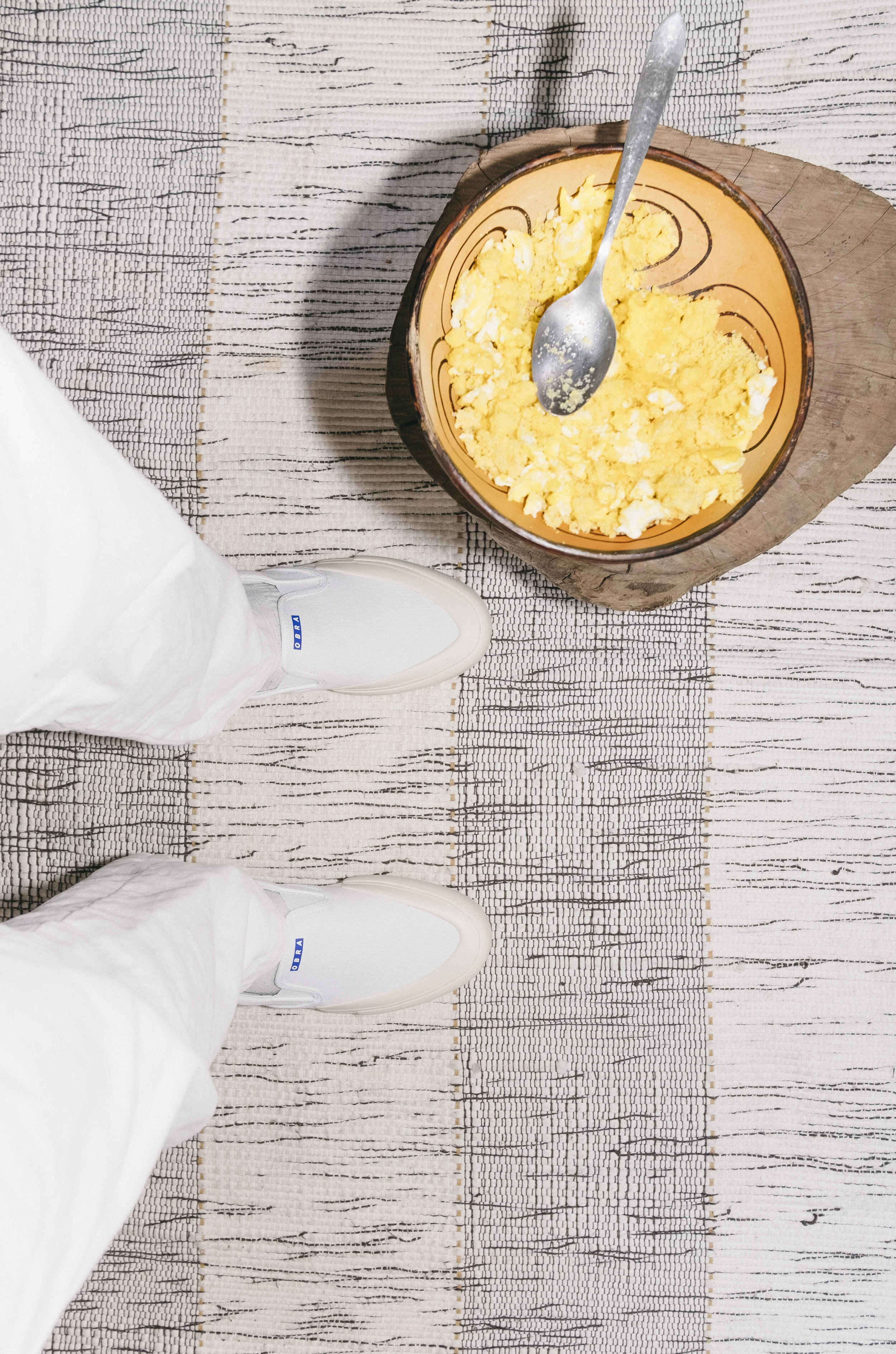“One of the initial considerations are the market you want to be in and the values that are important to you. Will you be chasing trends or attempt to influence fashion trends or will your brand focus on quality, wearability, value and ethics.”
I have come across many vulcanized sneaker brands, and as a sneakerhead, I must say OBRA is by far one of my favorite sneakers to wear. Comfort is everything for me when it comes to sneakers; unlike the new age sneakerheads, I love to wear my shoes! The sneakers' details are also remarkable from the outsoles, the rubber, and the footbed made with performance polyamide footbed lining: Cool in the summer, warm in the Winter. I wouldn't have expected anything better from a shoe designed by these two extraordinary and well knowledgeable men in the footwear business Arnaud Delecolle and Dave Cory.
Arnaud came from a lineage of footwear manufacturers started with his grandfather, after world war 2 in France, manufacturing shoes in Portugal, Spain. His dad then took over and went on his own to Brazil, where Obra shoes are manufactured. Arnaud explained to me that "It was my duty as a young boy to bag my father's samples. I never wanted to be in the footwear business, but I did get into the fashion business. As i was growing up and trying to sort of find an identity." He started with journalism and marketing first at UNC, then I went to FIT, and at FIT, he was in journalism and marketing. " I was singled out as a good writer, received an internship with a magazine. Based on the thesis that I had made for my marketing class on the future of E-commerce in 1993. " Delecolle stated, "Back then i was 23, where it was like retail is dead, e-com will take over. I put that into a trade magazine meant for brick and mortar retailers; the publication was called Sportswear International. I learned about the American fashion market, I wrote for 7 years until I realized there is no money in writing or any type of money; for me, that would be significant. My wife at the time felt the same way, and we decided we'd open the store. I was also moonlighting at a creative agency with two co-workers from the magazine and talked them into getting on board the retail idea that would become ALIFE."
Dave is quite a different story; he comes from a snowboarding background; he worked various jobs at Burton Snowboards for 12 yrs mostly riding with shops and giving tech clinics. At the time, snowboarding was on the outskirts of popular culture, but he understood a consumer, the youth minded male. "Snowboarding was great, but it was in the mountains, away from the metropolitan areas, and we only got paid when it snowed." With that being said, he made a solution to have a year-round business to create footwear; being that Burton was already in boot factories, it seemed like the logical next step for the brand. Dave and his team ended up creating Gravis footwear. With Burton's global distribution already established, it took off immediately, especially in Japan. After moving on from Burton/Gravis, he teamed up with Udi Avshalom to handle his growing manufacturing business of designing, developing, and commercializing footwear for various customers. " It was very eclectic. On any given day, I would go from bringing samples to Mickey Drextlers' office at J-Crew then right to Jay-Z's office on the same afternoon. Running with Udi was terrific. We were hustling. Unquestionably a fun time in NY." Dave then ended up taking a job with Converse running Converse Cons, which is their skate program. Russ Pope was the lead for the marketing business, and Dave was the lead for the product. "The first thing we did was take the Converse One Star out of big box stores and shelve it for a year. During that time, I worked with our skate team to rebuild it." After re-introducing the shoe through the sharp point of skateboarding, they developed the lifestyle version and did collaborations with people like Tyler The Creator and Hiroshi Fujiwara.
Both Dave and Arnaud spent their years understanding the sneaker culture and knowing exactly what a consumer will want in a shoe, which led them in 2017 to team up and create OBRA. In our interview, we touch on the e-commerce business, what it took for them to start a sneaker brand, and the importance of ethics and value in creating a brand.







